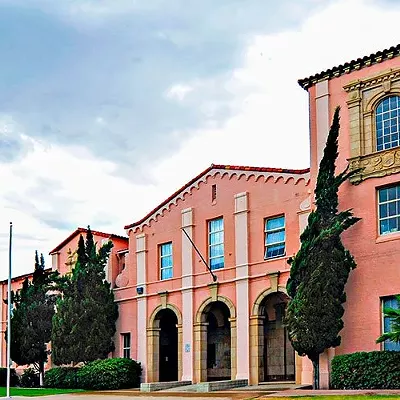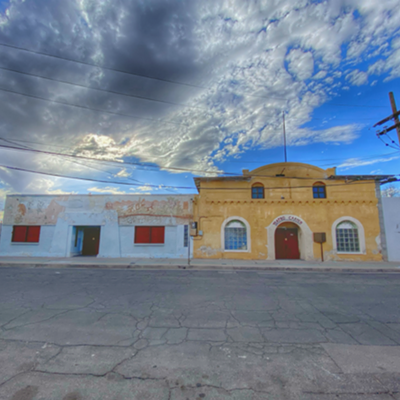"He's a nice gentleman, but his performance has been awful," Cuevas says.
The two incumbents seeking re-election to their seats, Bruce Burke and Adelita Grijalva, vigorously dispute both those assertions.
"I think he's doing a good job," Grijalva says of Pfeuffer. "The district was in a lot of turmoil, but when he came in, there was a good transition."
Burke agrees that Pfeuffer has done a good job, and adds of the rubber-stamp assertion: "That's not correct. I've voted against him (sometimes), and the board doesn't always accept his recommendations. But I think it's healthy that we support most of them."
Burke, a 57-year old attorney, says he is running for another term so he can continue some of the good things the board has started. "We need to continue to find ways to place more resources into classrooms," he says, adding that he wants to reduce classroom sizes up to the third grade. Plus, Burke hopes to move more decision-making away from central administration and into local schools.
A 34-year-old social service worker, Grijalva says she is seeking re-election because TUSD isn't doing enough for at-risk students. She also hopes to be involved with finding a replacement for Pfeuffer when he retires in a few years, while also working to close the minority achievement gap in grades and test scores.
"The achievement gap is a big issue," Grijalva says. "We're placing attention on it, but not enough. We need lots more focus on children of color, and when they're able, (we need to) raise the vigor of their course work so they can get into GATE (Gifted and Talented Education) or honors programs. Plus, we need more follow-up (with these students)."
Cuevas, a 19-year-old enrolled at the UA who's a Cholla High Magnet School graduate and former student representative to the TUSD board, says he would bring a different perspective to the board. "I have (personal) experience with the No Child Left Behind policy and the AIMS test." That background leads him to criticize the district for its large classroom sizes and the practice of having teachers primarily teach students to pass standardized tests.
In addition to 3,700 teachers, 3,600 support staff and 200 administrators, TUSD has more than 60,000 pupils, but all three candidates agree the loss of students to charter and private schools is a serious problem. Burke puts the declining enrollment at around 1,400 during the past five years; the exodus is costing the district $8 million annually in tax money.
Grijalva points out that many parents opt to take their children out of TUSD when they get to middle school, and she thinks more needs to be done to explain the district's advantages. Additionally, she would like to see popular courses at one school duplicated at other schools in order to attract students while also having smaller class sizes in high schools so students don't feel lost.
Cuevas says he believes the student exodus is the district's biggest challenge. "TUSD needs to come back to being a friendly service district. Instead, it has created a type of monotony that's just ridiculous. In trying to streamline things, teachers are not allowed to teach their way."
Burke believes TUSD should do more to find out why students are leaving the district and then recruit them back. "We have a lot of good schools with lots of good programs," he says. Burke also acknowledges that because of decades-old court-ordered desegregation requirements, some students can't even go to their own neighborhood schools, so they choose a charter instead.
The federal court order led to the establishment of a property tax-supported fund to combat school segregation in the district, an amount this year which totals $57 million of the district's $343 million operating budget. Critics contend the desegregation fund needs to be reduced, while supporters insist it must be maintained.
Cuevas says: "The desegregation budget isn't transparent. ... The governing board can require the superintendent to itemize that budget, and they shouldn't approve it until they know what's going on. They need to take a strong stand."
Burke says that even if TUSD is released from its desegregation mandates, that doesn't mean the fund will disappear. But he sees the Arizona Legislature as a potential threat to the fund's existence, and says the board must advocate for it.
Grijalva believes the school board needs some measurement of what qualifies as an appropriate desegregation expenditure. "It will continue to be a challenge," she says of the fund, "and we can't fix it right away. Everything takes time."
When asked why people should vote for her, Grijalva responds that she's very capable. "I've learned a lot in the last four years, and I've been a good advocate."
Believing he's helped implement procedural changes which have reduced internal district stress, Burke says of why he deserves support: "I made good decisions."
Emphasizing the volunteer service he provided in high school, Cuevas asks for votes because: "I understand the district from the inside and outside, and I'll bring that knowledge to (the board)."









